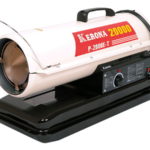With the onset of cold weather, people begin to think about how to heat a house, a summer house, a garage, an office and other premises. One solution is to purchase a diesel heater. In the modern world, there are no problems with the choice, because the market offers a wide range of these devices, which differ in the principle of operation, manufacturer and cost. In this review, we will help you decide on the type and model of a diesel heater.
The device of a diesel heater and the principle of its operation
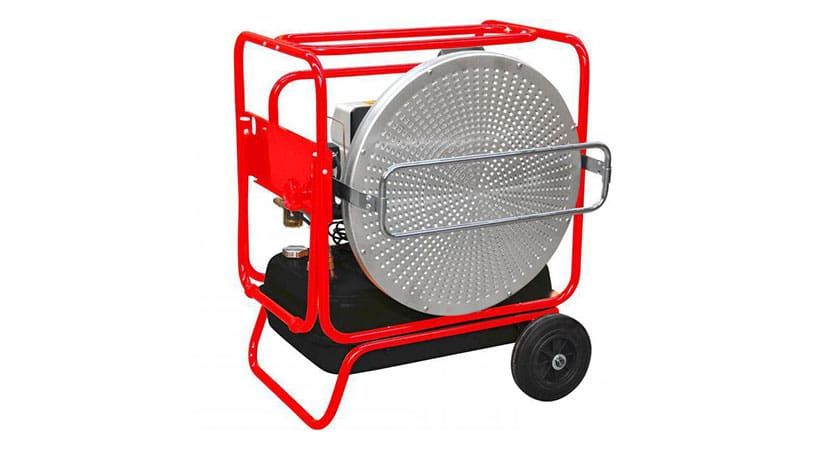
The principle of operation of a diesel heater is very similar to an electric one, but the difference is that the former runs on diesel fuel, while the latter requires electricity. The diesel fuel heater includes:
- The combustion chamber;
- Spark plug;
- Fan motor and impeller;
- Pump;
- Filters for cleaning air at the inlet and outlet;
- Fuel tank;
- Controller;
- Pipes through which air enters;
- Flame stabilizers;
- Fuel nozzles.
Diesel fuel is poured into the tank, from where it will enter the combustion chamber. Next, the fan will blow the air in order to ignite the fuel. Filters purify the air from various particles and combustion products of liquid fuel, and controllers regulate the air temperature.
![]() See also - How to choose an inverter heater for home and outdoor
See also - How to choose an inverter heater for home and outdoor
Place of use of diesel heater
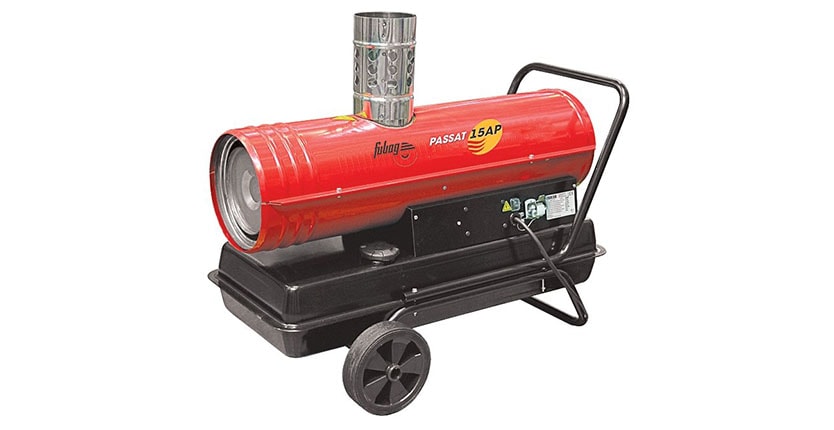
Liquid diesel heaters can be used in different rooms. The place of application depends on both the dimensions of the device and the size of the heated room. For example, small units like heat guns are perfect for a garage.
Infrared diesel heaters will perfectly fit where it is necessary to heat the air in an open space: a cafe, a veranda. Note that this type of apparatus is also suitable for indoor use.
Solar gas heaters can be taken with you, for example, on a hike, and cooked on it, and it is also perfect for heating a summer cottage.
We will talk about all these types of devices a little later.
Varieties of diesel heaters
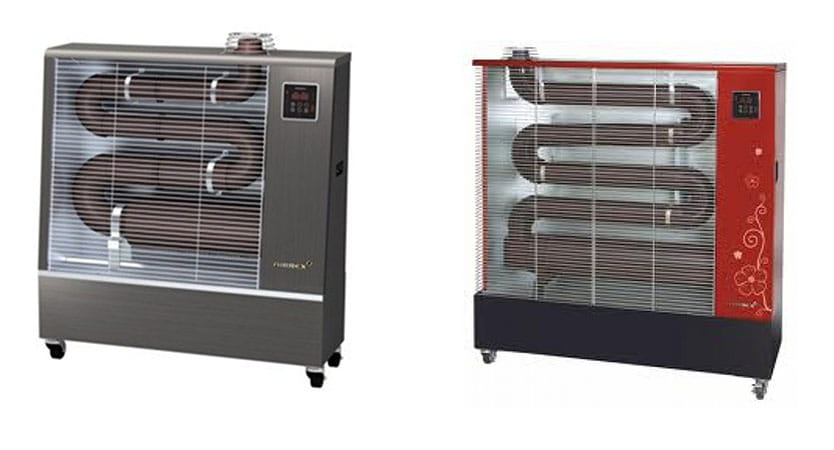
Diesel fuel heaters are divided into the following types:
- Stationary;
- Air;
- Infrared;
- Direct acting devices;
- Indirect action units.
The differences between the last two are that direct heaters are not equipped with filters and air vents for combustion products. It must be remembered that during the operation of such an aggregate, the latter immediately enter the room in which it is located. Therefore, they are used in non-residential premises or for emergency repairs during the cold season.
Heaters of this type are characterized by a combustion control system. Note that it works in automatic mode. A large fuel tank allows you to refuel every 10-15 hours.
Indirect heated diesel heaters do not emit combustion products into the environment, which was achieved through the use of filters that clean the air. These devices are perfect for living quarters.
![]() See also - Infrared heaters harmful or not
See also - Infrared heaters harmful or not
Infrared diesel heater
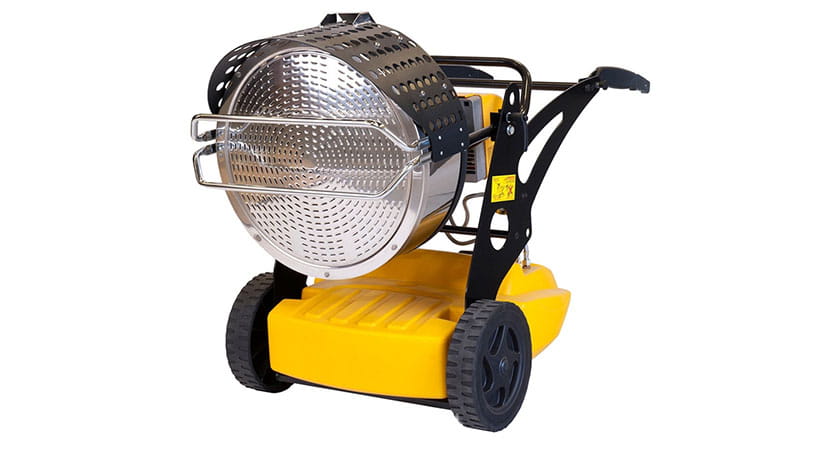
This type of unit can heat buildings with high ceilings because they are usually installed on a ceiling or wall. Infrared radiation will help to warm even gazebos located in the air.
Such heaters act similarly to solar radiation. When burning fuel, heat rays are generated to heat objects, people, or walls, which, in turn, already heat the air in the room with their heat. This helps to save fuel consumption, which is undoubtedly an advantage. These devices are recommended to be used in those rooms that are characterized by poor thermal insulation or there are restrictions on the use of electricity or there is a shortage of it.
Air diesel heater
The operation of the air heater resembles the principle of the fan. This unit is equipped with a robust housing that protects against overheating and mechanical damage. Heat guns, which are a type of air heater, heat the room by moving a warm stream of air and often use them in non-residential premises.
The main feature of this type of heater is that it heats the room as long as it works. This means that if you turn it off, the temperature in the building will drop sharply.
Pros and cons of diesel heaters
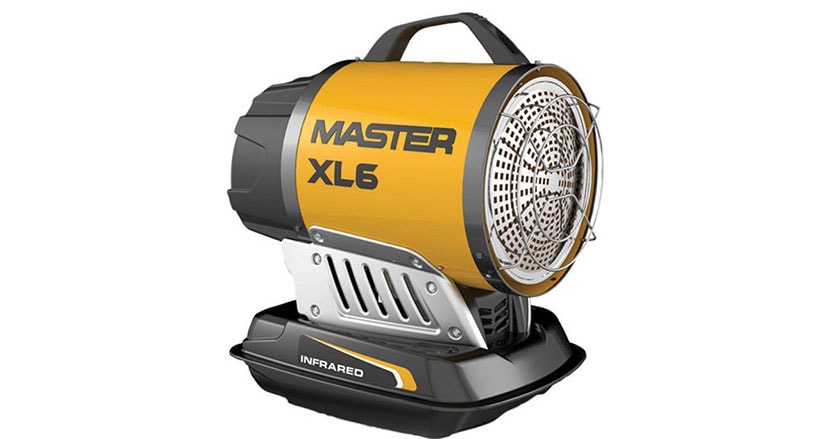
Like any device, a diesel-fired heater also has its pros and cons.
Benefits:
- Compact size;
- Autonomy;
- Profitability - from a financial point of view, the purchase of diesel fuel is much cheaper than electricity;
- Mobility - you can take with you or move to the most convenient place;
- Large assortment of heaters.
In addition to all of the above, modern models have additional functionality, are as economical as possible, and you can control them remotely.
Disadvantages:
- The high cost of the unit;
- High noise level during the work;
- Combustion products that may be released during room heating.
What makes diesel heaters better than others?
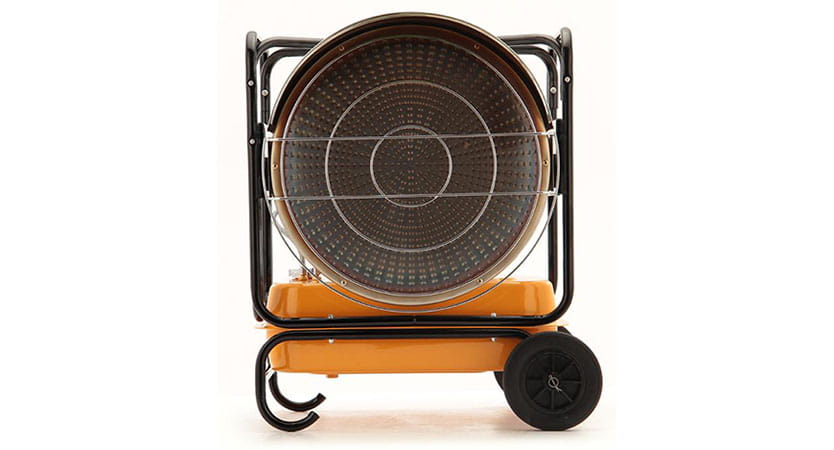
Among the main advantages are the following:
- Efficiency of about 90%;
- Economical fuel consumption;
- Fast and high-quality heating of large rooms;
- Wheels that help to quickly move the device from place to place;
- A variety of types of diesel heaters and their capacities;
- Economical consumption of electricity;
- Control over combustion and safety occurs automatically;
- Fuel tank - allows the heater to work for a long time without refueling.
Criteria for choosing a diesel heater
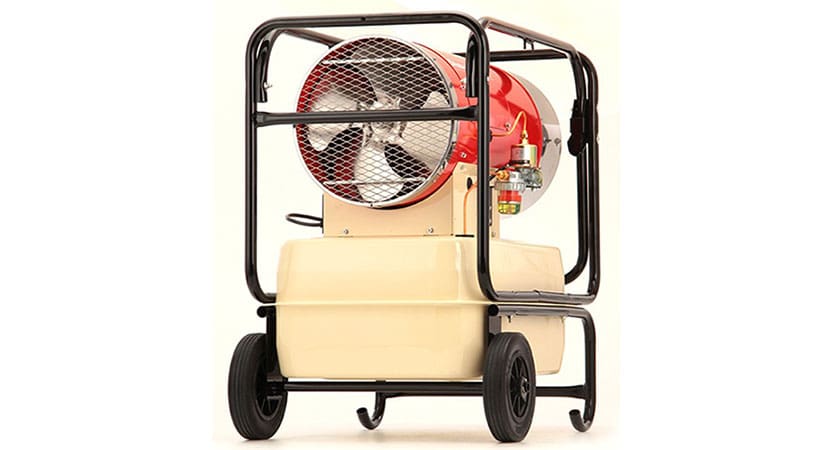
Undoubtedly, every person adheres to certain criteria before purchasing any unit, to which he prefers. When choosing a heater, the criteria may be as follows:
- Air exchange. This indicator is very important for heat guns. The higher this value, the more heat flows are accelerated, and, therefore, the room heats up in a short period of time;
- Fuel consumption.It should be borne in mind that from 1 liter of fuel approximately 10 kW of power should be obtained;
- Direct and indirect action. For the first type of heaters, additional ventilation is required, as combustion products go directly to the room. For this reason, they are inappropriate to use in small and enclosed spaces. Indirect action units are equipped with filters, unlike the first type, they are not so economical;
- Ability to change modes. It is very convenient if during the operation of the heater you can change its power. It is also economical, because some devices with minimal heat are able to function without refueling for two weeks
- Timer. With it, you can set the time during which the heating will be intense, after which the heater itself will turn off;
- Noise. When the diesel heater is operating, the noise will be anyway. This is a fundamental indicator, it must be taken into account. Note that a figure of 45 dB can be considered appropriate;
- The presence of wheels. Large heaters are equipped with wheels to make them easier to move
Top manufacturers
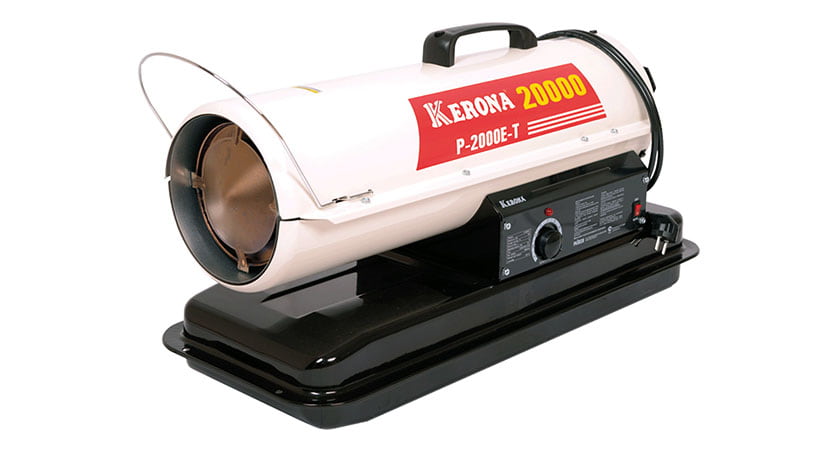
Today, you can choose a heater that runs on diesel fuel from a wide range of products on the market. Moreover, you can choose according to various indicators: price, manufacturer, power, etc. But we advise you to purchase an aggregate of one of the brand below. Note that the rating was compiled taking into account customer reviews and tests.
- Kerona
- Hintek;
- Ballu;
- Master
- Biemmedue
All presented manufacturers supply diesel heaters to the market, combining concepts such as price and quality.
See also:
- 5 best Stiebel Eltron heaters of the year
- 5 best digital weather stations for the home of the year
- 5 best electric fireplaces and hearths according to customer reviews
- The 9 best Electrolux electric fireplaces and hearths according to customer reviews
- 9 best RESANT heaters according to customer reviews


